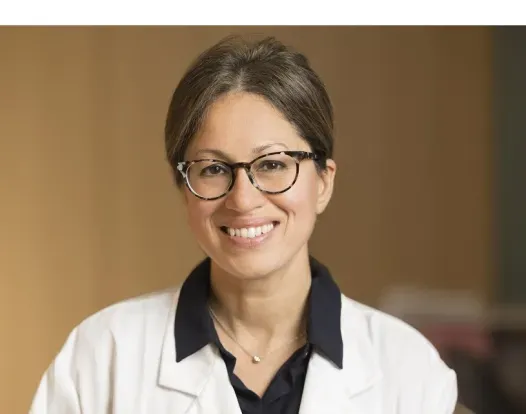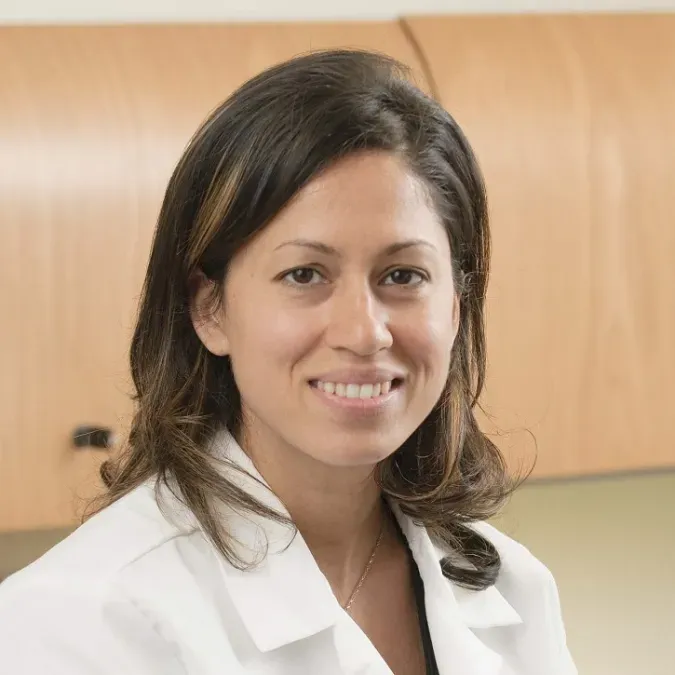Hear candid conversations between people conquering cancer – patients, their family and friends, and doctors and researchers working to help us all.
Dr. Shanu Modi led DESTINY-Breast04, a groundbreaking study that resulted in FDA approval of a promising treatment for nearly 50% of all patients with metastatic breast cancer. Dr. Modi discusses the importance of patient participation in clinical trials, the necessity of donor-funded research, and the bright future of breast cancer care.

Dr. Shanu Modi, a Conquer Cancer grant recipient and the oncologist who led the study, speaks with breast cancer survivor Brenda Brody about the highlights from this groundbreaking research. They talk about the importance of patient participation in clinical trials, the necessity of donor funding for research, and the bright future of breast cancer care.

WHAT YOU'LL HEAR IN THIS EPISODE:
• Takeaways from the practice-changing DESTINY-Breast04 trial
• Information about different subtypes of breast cancer
• Expert tips for patients recently diagnosed with cancer
• How patient participation in clinical trials accelerates research
• Why donor funding is necessary for vital research to continue
The Science: HER2-Positive & HER2-Low Breast Cancer
Two subtypes of breast cancer are “HER2-positive” and “HER2-low.” When the HER2 gene – human epidermal growth factor receptor 2 – is switched on, it makes the HER2 protein. This protein is found on breast cancer cells and drives tumor growth. HER2-positive disease has greater levels of the HER2 protein and represents about 10-20% of all breast cancer diagnoses. Patients with HER2-positive cancer typically receive HER2-targeted therapies for treatment.
“We have eight HER2-targeted drugs available today. They have only been effective in patients whose tumors have extremely high levels of the HER2 target,” says Dr. Modi.
Conversely, HER2-low breast cancer has negligible levels of HER2. And until now, treatment options for patients with HER2-low disease have been limited.
“This low level of HER2 is targetable by a new generation of HER2-targeted therapy,” says Dr. Modi. “We’re at a point where we can expand HER2-targeted therapies to a whole new population of patients who have not had a HER2-targeted therapy before.”
The Research: Patients See Prolonged Survival
In the DESTINY study, Dr. Modi compared the effectiveness of trastuzumab deruxtecan (T-DXd), a drug for patients with HER2-low breast cancer, to standard chemotherapy. She tested for “progress-free survival,” the length of time a patient’s tumor can be effectively kept under control before it starts growing again. Historically, clinical research has helped improve quality of life for patients. The DESTINY trial took this a step further by working to extend survival. Dr. Modi found that T-DXd showed immense benefits for patients with HER2-low disease, a population that accounts for most people with breast cancer.
“[T-DXd] dramatically improved the time for the tumors to remain under control, and it dramatically improved prolonged survival for the patients with HER2-low metastatic breast cancer,” says Dr. Modi, who reports that patients treated with T-DXd saw doubled duration of cancer control and a 35% increase in survival. “An average 6-month improvement in prolongation of survival is actually very significant – it proves the point that we can make an impact in late-stage breast cancer. We can improve survival, and it’s just the beginning of where we can go with drugs like this.”
The DESTINY data also shows promise in the future of treatment for patients with other types of cancer.
“I think what we’ve shown in this trial, in many ways, can be extrapolated to other cancers, where we can now attempt to target low level proteins that we never thought we could target before,” says Dr. Modi. “This could really open up a lot of research and hopefully, progress, in lots of different types of cancer, for lots of different patients.”
The Importance of Clinical Trials and Donor Support
Studies like DESTINY are largely made possible by patient participation in cancer research. Clinical trials allow doctors to compare new drugs to standard care. Regardless of which treatment a patient receives, they are still helping to advance research for all patients.
“I encourage patients to think about clinical trials at every part of their journey with cancer. This is how we make progress in cancer medicine,” says Dr. Modi. “I’ve heard many patients say that even if things don’t work out for them, they hope that the trial they've participated in helps advance science and can help somebody else in the future.”
Dr. Modi is optimistic about the next frontiers in cancer care, from improvements in screening and diagnosis to advances in genetic-based and personalized therapies. But donor support is needed to accelerate breakthroughs and ensure vital research can continue.
“Breakthroughs rarely happen quickly. Discoveries like [that of] the DESTINY trial are really borne from years and years of research, and this is often fueled by private donor funding,” says Dr. Modi. “This type of funding is essential for research and progress to happen.”

